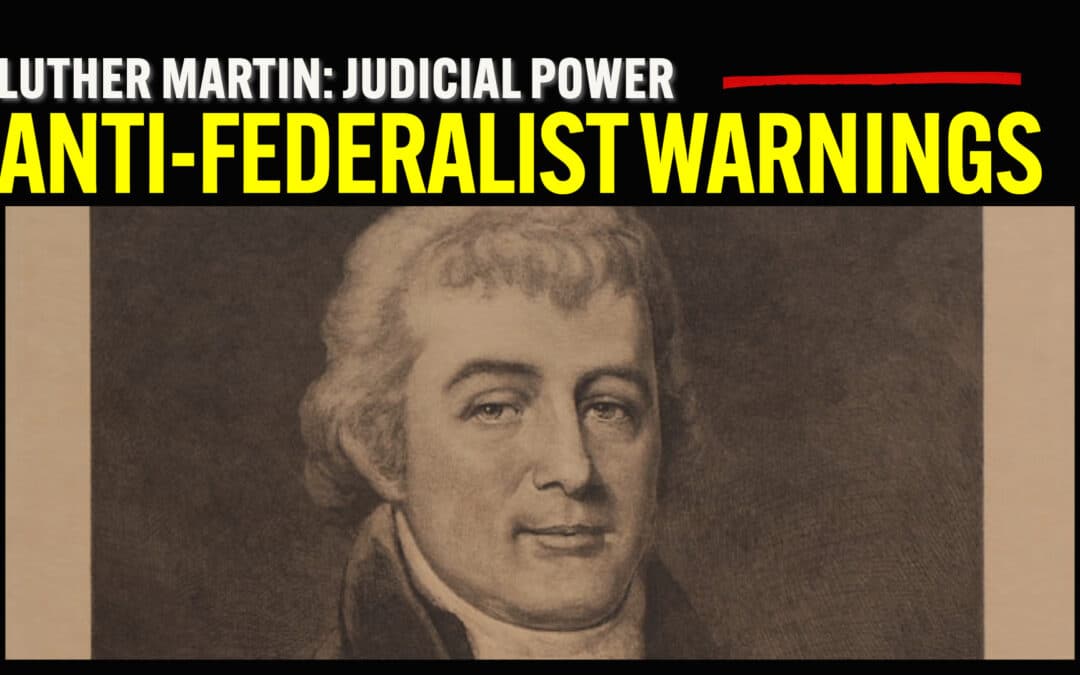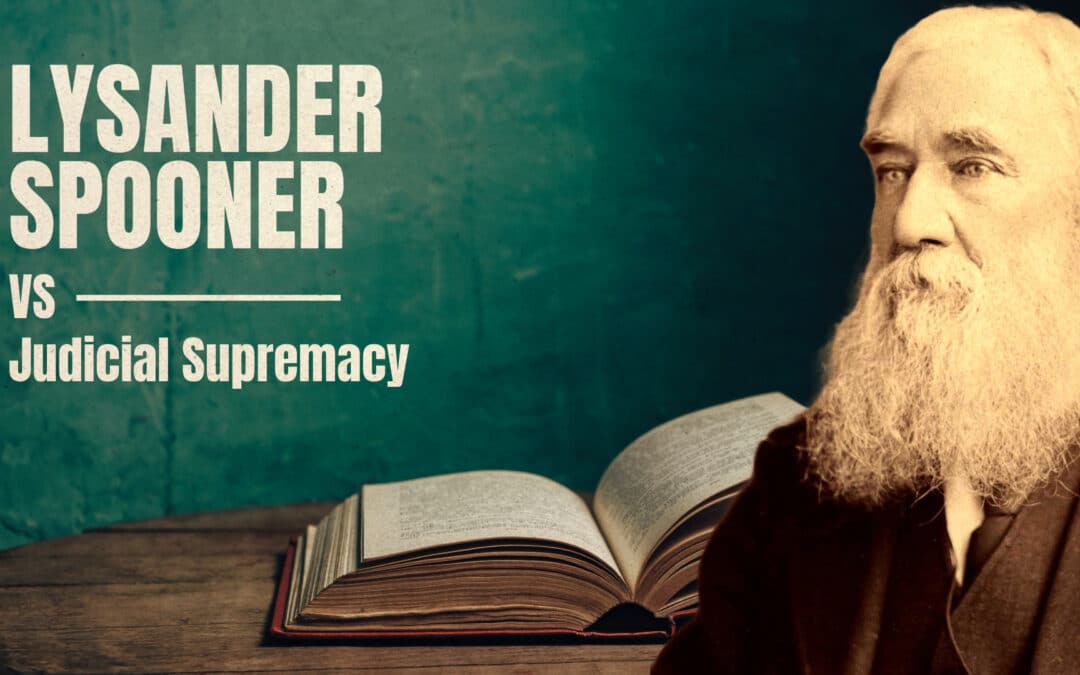


Were the Anti-Federalists Right?
“A monarchy, or a corrupt, tyrannical aristocracy” That’s what George Mason predicted we’d get under the constitution. And he was far from alone. The Anti-Federalists repeatedly warned that the constitution wouldn’t actually create a federal union....
Thomas Jefferson’s Greatest Fear: The Federal Judiciary and the Death of Liberty
“The great object of my fear is the federal judiciary.” That’s Thomas Jefferson – sounding the alarm over what he saw as the greatest threat to the Constitution and your liberty. He gave us four main warnings: Consolidation is death to freedom....
Three Pillars of Power: Luther Martin’s Anti-Federalist Warnings
Luther Martin warned that the Constitution would create a centralized national government with few real restraints – one that would steadily erode state sovereignty, override local control, and impose its will under the guise of law. In his essay Genuine...
